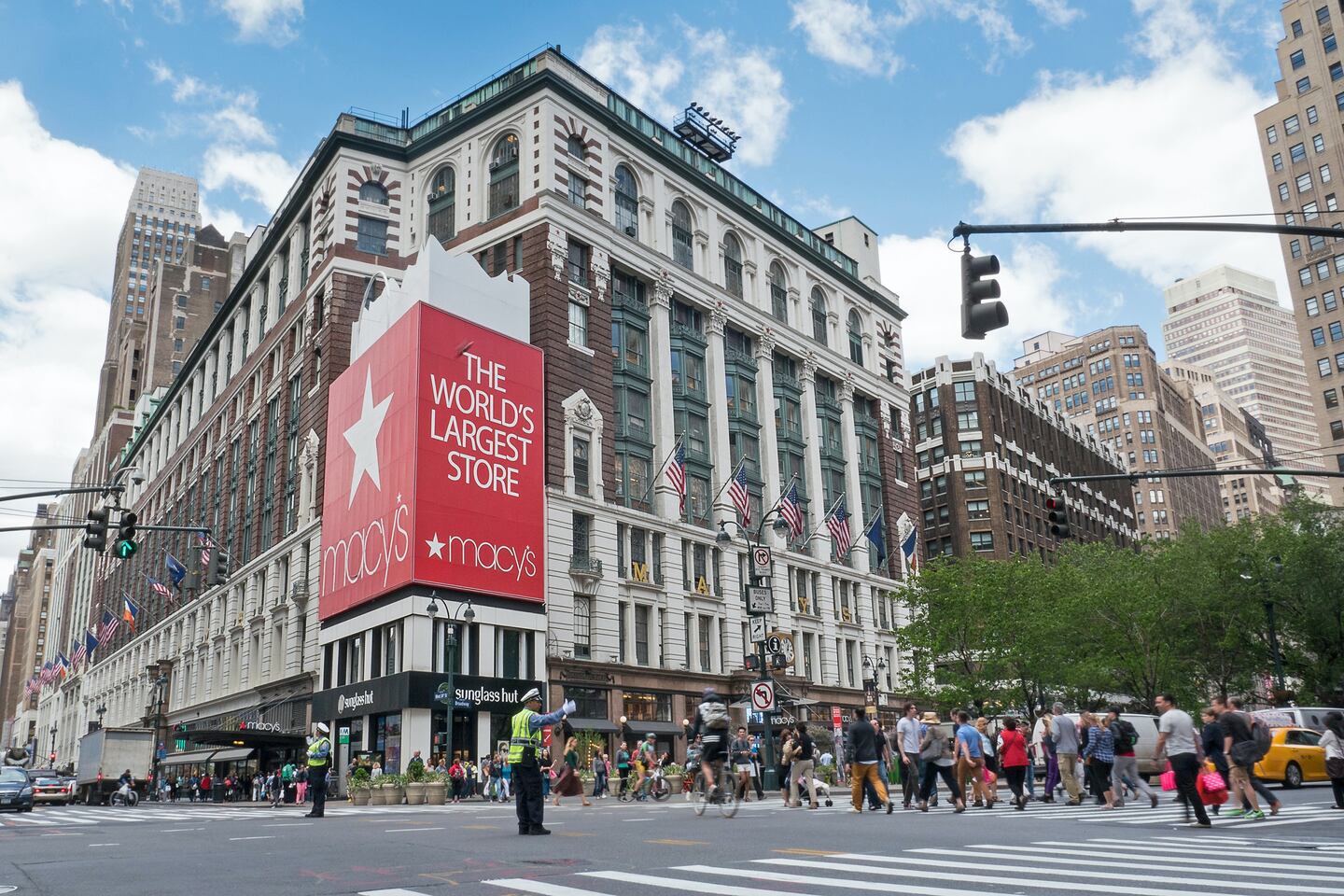
The Business of Fashion
Agenda-setting intelligence, analysis and advice for the global fashion community.

Agenda-setting intelligence, analysis and advice for the global fashion community.

NEW YORK, United States — Sometimes the most revealing corporate strategic moves are not the splashiest ones.
Case in point: Macy's announced Tuesday afternoon that it had acquired a minority equity stake in b8ta, a retail upstart perhaps best known for its gadget stores that provide a hands-on shopping experience. Macy's said it would expand its partnership with b8ta, using the newcomer's software to scale a new shop-in-shop concept in its department stores.
The value of the investment wasn’t disclosed, suggesting it is not an eye-popping figure. But it is important in that, coupled with other recent announcements, it provides a big hint about what the retail giant wants its next chapter to look like. And investors should be encouraged that it involves Macy's looking less like a traditional department store.
While Macy's had a good holiday season and a strong start to its latest fiscal year, its long-term challenges are still formidable. Mall traffic is slipping as more shopping moves online, and specialty chains like Ulta Beauty and off-price concepts like TJX' Marshalls and Home Goods are providing intense competitive pressure.
ADVERTISEMENT
It is urgent for Macy's to make meaningful changes to the shopping experience at its stores, and this arrangement with b8ta serves that cause. In February, Macy's introduced a concept it calls Market @ Macy's, small pop-up areas that give temporary space to both budding and big brands. B8ta's software will be used to power this effort, making it easy for brands to swap in and out. Macy's says b8ta's technology will allow it to scale the Market idea more quickly.
This appears to be an acknowledgement by Macy's that it needs for its stores to be less predictable and for its space to be able to be transformed quickly to showcase of-the-moment products.
Macy's has already signalled its intention to move in this direction. In May, it announced it had acquired Story, a disruptive retail concept that is something of a hybrid of a store and a gallery, with set-ups and product assortments that rotate every month or two. At the time, it also appointed Story's founder and CEO, Rachel Shechtman, as brand experience officer of Macy's, suggesting it intends to infuse the main Macy's brand with Story's approach to selling goods.
Together, these are good indications that Macy's is serious about overhauling its staid stores to make them into distinctive experiences. That’s a much more promising avenue for durable growth than some other initiatives, such as its off-price sections known as Backstage.
And while huge old companies are fond of saying they think or act like scrappy startups, this might be a rare case where it is true. In May, a department-store startup called Neighborhood Goods announced it had raised $5.75 million in funding as it works to open its first store in Plano, Texas. (Aside: "Department-store startup" is a phrase I never thought I'd write.) Neighborhood Goods will also aim to frequently rotate the brands it displays and plans to use experiential features like a restaurant and a speaker series to lure people through its doors.
Macy's has the right idea by trying to break out of the stuffy department store mold. Now it just has to hope it's not too late for its efforts to make a difference.
By Sarah Halzack; editor: Daniel Niemi.
The views expressed in Op-Ed pieces are those of the author and do not necessarily reflect the views of The Business of Fashion.
Related Articles:

In 2020, like many companies, the $50 billion yoga apparel brand created a new department to improve internal diversity and inclusion, and to create a more equitable playing field for minorities. In interviews with BoF, 14 current and former employees said things only got worse.
For fashion’s private market investors, deal-making may provide less-than-ideal returns and raise questions about the long-term value creation opportunities across parts of the fashion industry, reports The State of Fashion 2024.
A blockbuster public listing should clear the way for other brands to try their luck. That, plus LVMH results and what else to watch for in the coming week.
L Catterton, the private-equity firm with close ties to LVMH and Bernard Arnault that’s preparing to take Birkenstock public, has become an investment giant in the consumer-goods space, with stakes in companies selling everything from fashion to pet food to tacos.